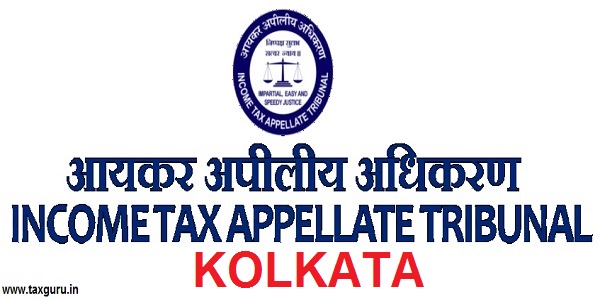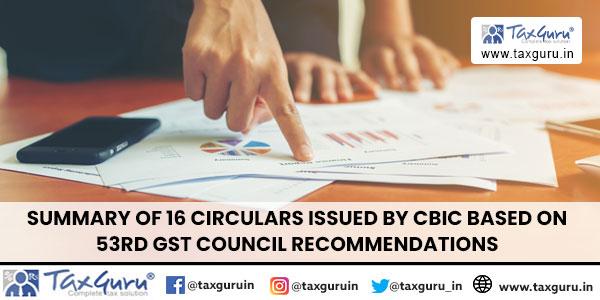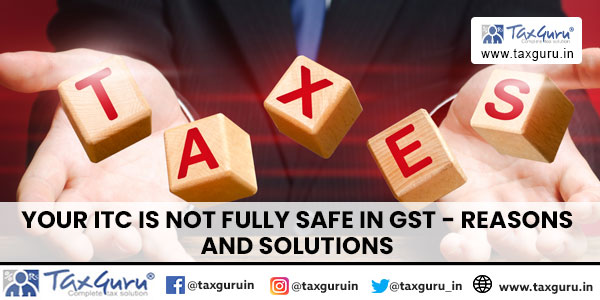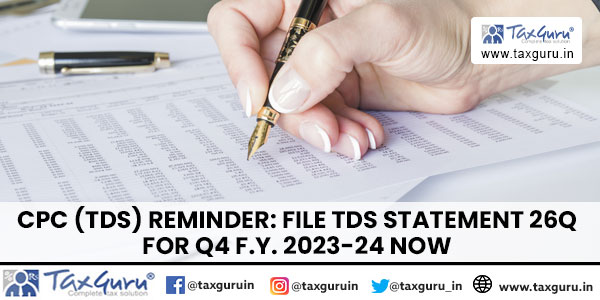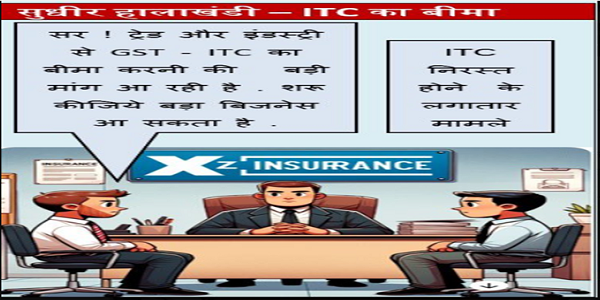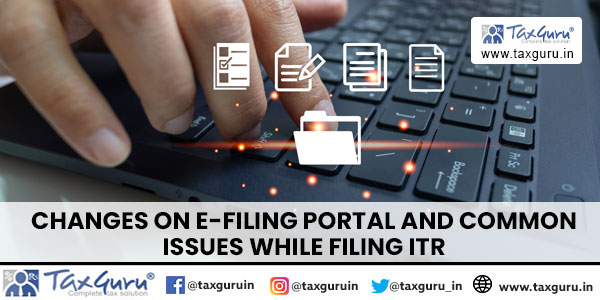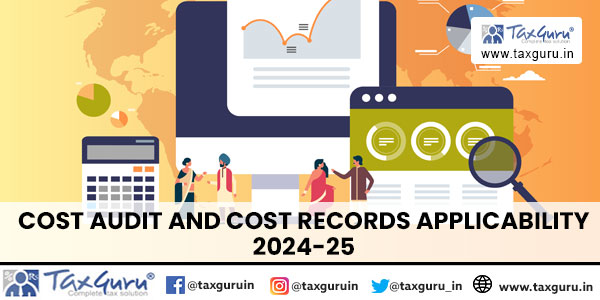PENSION FUND REGULATORY
AND DEVELOPMENT AUTHORITY
B-14/A, Chhatrapati Shivaji Bhawan,
Qutub Institutional Area,
Katwaria Sarai, New Delhi-110016
Ph : 011-26517501, 26517503, 26133730
Fax : 011-26517507
Website : www.pfrda.org.in
PFRDA/2019/23/REG-PF/4
Date: 21st November, 2019
CIRCULAR
To
- CEOs of All Pension Funds
- CEO of NPS Trust
Dear Sir/Madam,
SUBJECT: Revised Valuation Guidelines for valuation of securities under NPS Schemes and other pension scheme(s) administered by PFRDA
1. PFRDA issued valuation guidelines in April, 2012 for valuation of securities for NPS Schemes under PFRDA (Preparation of Financial Statements and Auditors Report of Schemes under National Pension System) Guidelines-2012.
2. It has been decided by the Authority after consultation with the Pension Funds to issue revised valuation guidelines under NPS schemes and other Pension scheme(s) administered by PFRDA. These guidelines are given at
3. These guidelines shall supersede earlier guidelines/instructions issued in this regard and may be effectively implemented from 1st December, 2019, however, if necessary software developments at the Pension Fund and Valuation Agency end requires some more time, it should be ensured that guidelines are implemented latest by 1st January, 2020.
4. NPS Trust and Pension Funds shall ensure necessary mechanism for implementation of the same.
5. This circular is issued in exercise of powers of the Authority under sub-clause (b) of sub-section (2) of Section 14 read with Section 23 of the PFRDA Act, 2013 and sub-regulation (1) of Regulation 14 of the PFRDA (Pension Fund) Regulations, 2015.
Yours sincerely,
Sumit Kumar
General Manager
Encl: Annexure
Annexure
Valuation Guidelines, 2019
1. Introduction
2. Principles of Valuation
3. Objective
4. Definitions
5. Valuation of Equity and Equity related Instrument
6. Valuation of Shares on Merger, De-merger and Other Corporate Action Events
7. Valuation of Debt Securities (other than government securities)
8. Government Securities
9. Valuation of Mutual Fund Units
10. Miscellaneous
11. Valuation policy for securities below investment grade
12. Valuation of securities not covered under the current Valuation Policy
13. Methodology of valuation adopted by the third party valuation agency
14. Changes or amendments to the policy
1. Introduction
As per Regulation 15 of the PFRDA (Pension Fund) Regulations, 2015, the securities held in the name of National Pension System Trust and managed by the pension funds under the pension schemes regulated by the Authority shall be valued in accordance with the guidelines issued by this Authority from time to time.
Valuation of securities held under the NPS Schemes is a vital activity undertaken by the Pension Fund at the day end to arrive at the scheme wise Net Asset Value (NAV) at which subscriber transactions such as purchase/redemption/switch of units are undertaken.
Presently ‘mark to market’ accounting practices have been adopted for valuation of NPS securities and the valuation of assets are done on the basis of guidance provided under the “Guidelines for preparation of Financial Statements and Auditors Report of Schemes under NPS” which were adopted in 2012-13. As these guidelines have been issued in the year 2012-13, several changes have taken place in the practices being followed by financial sector intermediaries based on the guidance issued by other financial sector regulators.
Therefore, the Authority in exercise of its powers under sub-clause (b) of sub-section (2) of Sec 14 of the PFRDA Act, 2013, read with Regulation 15 and Regulation 43 of the PFRDA (Pension Fund) Regulations, 2015 issues these guidelines which shall be called as Valuation Policy guidelines, 2019 and shall be applicable to all investments made under National Pension System (NPS) and other schemes approved/administered by PFRDA and managed by Pension Funds. These guidelines shall supersede earlier guidelines/instructions issued in the matter and shall be followed henceforth. Pension Funds, NPS Trust and third party valuation agency (appointed by NPS Trust), shall ensure necessary mechanism for implementation of the same, from the effective date.
2. Principles of Valuation
The valuation of investments shall be based on the principles of fair valuation i.e. valuation shall be reflective of the realizable value of the securities/assets. The valuation shall be done in good faith and in true and fair manner through appropriate valuation policies and procedures.
The responsibility of true and fairness of valuation and correct NAV based on the scrip level prices provided by the third party valuer shall be of the Pension Funds. The Pension Funds shall value the assets/ securities at fair value at all times by following the valuation guidelines issued by PFRDA and the third party valuation services facilitated by NPS Trust. NPS Trust shall be responsible for putting in place a system whereby the valuation of assets by Pension Funds is uniform and consistent.
3. Objective
The objective of these guidelines is to specify methodology and the manner in which securities/assets should be valued by Pension Funds to ensure consistent valuation and transparency.
These guidelines shall be reviewed annually or more frequently by NPS Trust (preferably before the 2nd quarter of every financial year) to ensure the appropriateness and accuracy of the methodologies used and its effective implementation in valuing the securities/assets. If any changes are required in the valuation guidelines including the methodology, the same shall be recommended by them to PFRDA along with justifications for such a change and recommended course of action.
4. Definitions
a. Traded Equity Securities
An equity and / or equity related securities (such as preference shares, convertible debentures, equity warrants etc.) would be considered as traded if the security is traded on any stock exchange provided such date is not more than thirty days prior to valuation date.
b. Non-traded Equity Securities:
When an equity and / or equity related securities (such as preference shares, convertible debentures, equity warrants etc.) is listed but not traded on any stock exchange for a period of thirty days prior to the valuation date, the scrip must be treated as a ‘non-traded’ security.
c. Thinly Traded Debt Securities
A debt security (other than Government Securities) shall be considered as a thinly traded security if, on the valuation date, there are no individual trades in that security in marketable lots (currently applicable) on the principal Stock Exchange or any other Stock Exchange.
d. Unlisted Equity Securities
If on a valuation date a security is not listed on any recognised stock exchanges, it would be considered as unlisted security.
e. Recognized Stock Exchange
National Stock Exchange (NSE) and Bombay Stock Exchange (BSE) would be considered as recognized stock exchanges in India.
f. Principal Stock Exchange
National Stock Exchange (NSE) would be considered as principal stock exchange.
g. Secondary Stock Exchange
Bombay Stock Exchange (BSE) would be considered as secondary stock exchange.
The detailed Asset wise/security valuation policy, procedure and methodology for investments made by the Pension Funds is as under:
5. Valuation of Equity and Equity related Instrument
| S. No. | Equity Instruments/ ETFs | Valuation Methodology |
| a) | Securities traded on valuation day | As per closing price of the Principal Stock Exchange. In case, it was not traded on principal stock exchange then the closing price of the secondary stock exchange. |
| b) | Securities not traded on valuation day | When a security is not traded on any stock exchange on a particular valuation day, the value at which it was traded on the principal stock exchange or secondary stock exchange, as the case may be, on the earliest previous day may be used provided such date is not more than 30 days prior to valuation date. |
| c) | Securities suspended for reasons other than corporate actions | i)In case trading in an equity security is suspended upto 30 days, then the last traded price would be considered for valuation of that security.
ii) If an equity security is suspended for more than 30 days, then the valuation may be determined on case to case basis in consultation with PFs, NPS Trust with prior approval of the Authority. |
| d) | Index Funds | Valued at latest NAV available on AMFI website. Presently, previous day’s Scheme NAVs are being considered as Mutual Fund houses declare NAV at 9:00 pm and PFs cut off time for NAV declaration is 8:00 pm. |
| e) | Exchange Traded Funds | As per the closing price of the day of the respective stock exchange. |
| f) | IPO Application | 1. IPO application money pending allotment at cost basis.
2. Post allotment but awaiting listing at allotment price. |
| g) | Valuation of Futures and Options | Options:
i) If traded, then closing price to be considered ii) If not traded, then theoretical price based on Black Scholes Model may be considered. Futures: All futures shall be valued at the settlement price declared by the exchanges where they are traded in. |
| h) | Valuation of Warrants | a) Traded
In case the warrants are traded separately they would be valued as per the valuation guidelines applicable to equity shares. b) Non-traded If not traded, warrants can be valued at the value of the share which would be obtained on exercise of the warrant as reduced by the amount which would be payable on exercise of the warrant. |
| i) | Valuation of Preference Shares | a) Traded
If traded, they would be valued as per the valuation guidelines applicable to equity shares. b) Non Traded i) Redeemable Preference Shares would be valued similar to valuation of Non-Convertible Debentures and Bonds. ii) Convertible Preference shares would be valued at the value of the equity share which would be obtained based on the conversion ratio. |
| j) | Valuation of Convertible Debentures | a)Traded Securities
In case the convertible debentures qualify as traded then they would be valued as per the valuation guidelines applicable to equity shares and valued at cum-interest trade price. b) Thinly Traded / Non-Traded / Unlisted Securities Non-Convertible and Convertible components would be valued separately. i) Non-Convertible component would be valued on the basis of norms governing the valuation of Non- Convertible Debentures and Bonds. ii)Convertible component would be valued at the value of the equity share which would be obtained on conversion. Valuation guidelines related to equity shares would be applicable for the valuation of underlying equity shares. |
| k) | Valuation of Rights | Until the right shares are traded, each right share shall be valued as ex-rights price minus right offer price.
In case the rights price is higher than the ex-rights price, then the rights shall be valued at ‘nil’. The above formula shall be used till the date of allotment. From the date of allotment, the security shall be valued at the exchange closing price. |
6. Valuation of Shares on Merger, De-merger and Other Corporate Action Events:
On corporate action, above valuation guidelines may be difficult to adopt due to non-availability of the Balance Sheet of the restructured entities in public domain or the resultant securities come up for listing after few days while the valuations are required to be carried out effective on the date of the corporate action itself. Besides, in such cases there are generally no comparative parameters readily available for carrying out the valuation exercise. Following broad valuation guidelines would be used for the valuation of securities resulting from the corporate actions:
1. In case of debentures/bonds, the security will be valued as per the guidelines mentioned for Valuation of Debt Securities (other than government securities).
2. Equity Shares acquired through corporate action may be valued basis the following table:-
| S. No. | Corporate Action Event |
Valuation Methodology |
| a) | De-Merger | i) In case the shares of all resultant entities are traded immediately on de-merger, they would be valued at respective traded prices at exchange.
ii) In case shares of only one company are listed & traded on de-merger:
The value of the entity pending listing/trading is to be estimated at using closing value of the pre-demerger entity on the day before the de-merger, closing value of the listed entity on the ex-date of de-merger and the swap ratio using the following steps: a. Arrive at value / market cap of the pre-demerger entity using the closing price on the day before the demerger and the number of shares outstanding b. Arrive at value / market cap of the de-merged traded company using closing price on the day of demerger and the number of shares outstanding basis swap ratio c. Estimated value of the entity pending listing/trading post de-merger = ‘a –b’. Value per share to be arrived basis number of shares expected to be outstanding based on the swap ratio If value of the share of de-merged traded company is equal or in excess of the value of pre de-merger share (i.e. a-b is either 0 or negative), then the non-traded de-merged share is to be valued at Zero. |
| b) | Merger | In case of merger, when company ‘A’ is merged with company ‘B’ and company ‘B’ continues to be listed, the proportionate shares allotted of ‘B’ company against company ‘A’ will be valued at the closing price of company ‘B’ on the stock exchange.
In case of merger when company ‘A’ and company ‘B’ are merged to form company ‘C’, the value of pending listing company ‘C’ will be the total valuation price of company ‘A’ and company ‘B’ before the ex-date till the new entity company ‘C’ is listed and traded on a stock exchange. |
| c) | Buy-back of Securities | Market traded price of the shares will be considered for valuation till formal confirmation of acceptance of shares tendered under the buy-back schemes. Quantum of shares accepted under buy-back will be accounted as a sale trade. |
7. Valuation of Debt Securities (other than government securities)
Debt Securities are classified into following 2 categories:
i) Coupon bearing securities like Non-Convertible Debentures (NCD), Bonds, etc.
ii) Discounted securities like Zero Coupon Bonds (ZCB), Commercial Papers (CP), Certificate of Deposits (CD), Bills Purchased under Rediscounted (BRDS) etc.
Debt securities are valued at clean price, which means excluding accrued interest component of the security. If corporate bonds and debentures are quoted cum interest on the exchange, the valuation must be done by excluding the accrued interest portion (i.e. from the last due date of interest till date) from the quoted price, since the interest is accrued and accounted separately on a daily basis.
| S. No. | Type of Security/ Instrument | Valuation Methodology |
| a) | All Instruments/ Securities with residual maturity of more than 30 days | Traded Securities:
The traded price shall be taken subject to the fulfillment of the conditions practiced/adopted by the valuation agency after consultation with NPS Trust and PFs. Non-Traded Securities: The securities shall be valued on the basis of scrip level prices released by the valuation agency in consultation with NPS Trust and PFs. Purchase of new securities: In case of new security purchased for which price is not available, such security shall be valued on the basis of scrip level price (for coupon bearing securities) / scrip level yield (for discounted securities) at which the securities are purchased. |
| b) | Investment in “Additional Tier 1 (Basel III Compliant) Perpetual Bonds” [AT1 Bonds], ABS, MBS |
The Investment in AT1 Bonds, ABS and MBS shall be valued at scrip level prices as above. |
| c) | All Instruments/ Securities with residual maturity of upto 30 days | The securities will be valued by amortisation on a straight-line basis to maturity from last valuation price as long as it is within the prescribed range, (presently ±0.025%, i.e. ± 2.5 basis points) of the reference price provided by the valuation agency. |
8. Government Securities
The Government Securities include:
i) Central Government Securities
ii) State Government Securities / Loans (SDL)
iii) Treasury Bills (T-bills)
iv) Cash Management Bills (CMB)
v) Securities where payment of interest is guaranteed by central or state Government
vi) Other securities such as Municipal Bonds etc.
| Securities with residual maturity of more than 30 days | The security will be valued on the basis of scrip level prices released by the valuation agency on the same basis as debt securities maturing greater than 30 days. |
| Securities with residual maturity of upto 30 days | The security will be valued through amortization on the same basis as debt securities maturing upto 30 days. |
vi) The valuation of Inflation Index Bonds shall be based on inflation adjusted ratio (index ratio calculated based on the published inflation index.)
9. Valuation of Mutual Fund Units
| Mutual Fund Units | Valued at latest NAV available on AMFI website. Presently, previous day’s Scheme NAVs are being considered as Fund houses declare NAV at 9:00 pm and PFs declare it at 8:00 pm. |
10. Miscellaneous
| Valuation of Bank Fixed Deposits | To be valued at face value and amortized on a straight-line basis. |
| Investment in Units of “Real Estate Investment Trusts (REIT) & Infrastructure Investment Trusts (InvIT)” |
The investments in units of REIT/InVIT shall be valued on the basis of last closing price at the principal stock exchange (last closing price should not be later than 30 days).
If not traded on principal stock exchange, the closing price on any other stock exchange where units are traded will be used. |
| Alternate Investment Funds (AIF) | The investments in units of AIF shall be valued on the basis of last closing price at the principal stock exchange (last closing price should not be later than 30 days).
If not traded on principal stock exchange, the closing price on any other stock exchange where units are traded will be used. |
11. Valuation policy for securities below investment grade
(securities which were of investment grade at the time of purchase but which have fallen below the investment grade):
In the cases of securities below BBB -, the same shall be valued as below:
-
- All non-investment grade debt securities except with default rating (other than Government securities) and securities where credit rating agencies have suspended the ratings but are performing assets as per PFRDA guidelines shall be valued at a discount of 25% of the face value.
- All non-investment grade debt securities (other than Government securities) not covered above shall be valued at the indicative haircut matrix or price provided by the valuation agency. In case the security is traded where the haircut has been applied, lower of the haircut matrix based price and trade price shall be considered.
12. Valuation of securities not covered under the current Valuation Policy
In case of any security purchased by the Pension Fund does not fall within the current framework of the valuation of securities then the same shall be reported immediately to NPS Trust which in turn after examining the issue in detail shall recommend to the Authority a course of action to be taken on the matter. Post approval of Authority on the recommended valuation methodology, NPS Trust shall accordingly advise Pension Fund/Valuation Agency, such approved valuation methodology for implementation.
13. Methodology of valuation adopted by the third party valuation agency
The detailed Valuation Process of Security Level Valuation shall be framed by the AMFI approved third party valuation agency appointed by NPS trust in consultation with Pension Funds and approved by PFRDA. The Valuation Process may include the following aspects inter alia:
- The model on which derived yields/prices are arrived at
- Methodology for arriving at the closing price of a security (e.g. whether volume weighted average price or simple closing price on the primary exchange).
- Number of segments used for classification in case of bond matrices (E.g. PSU, NBFC, HFC and Corporates)
- Specific rules that would be used for identifying and eliminating the outlier trades.
- Process and methodology that would be used for polling from market participants including the fact as to whether the same is IOSCO compliant or not.
- Cluster identification and related details.
14. Changes or amendments to the policy
Any introduction/modification/changes in the Valuation Policy for a new or an existing asset type shall be approved by the Authority and incorporated thereafter in the Valuation Policy by NPS Trust. Similarly, the detailed methodology of security level valuation shall be shared by the valuation agency and reviewed by a committee of NPS Trust and representatives of the PFs chosen by NPS Trust for the purpose at least annually and before any changes are implemented.





